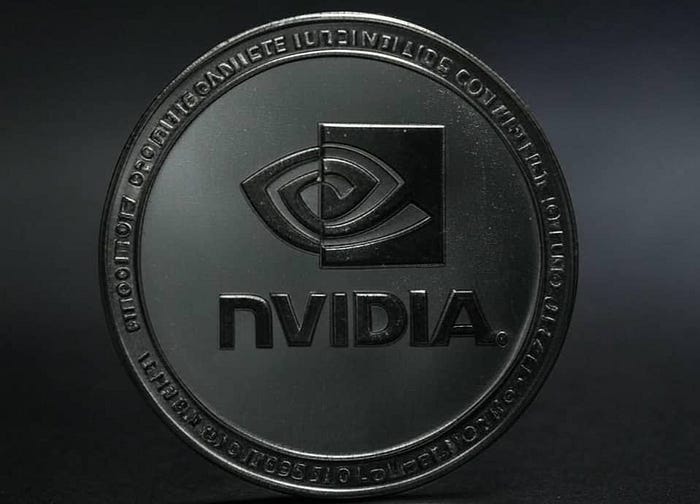This is not Bitcoin
Author: Stephen McBride
Translated by: Blockchain in Plain Language

Bitcoin (BTC) is a once-in-a-lifetime asset. Since 2009, its price has skyrocketed by 40 billion times, enough to turn a $100 small investment into $4 billion. I know many early adopters of Bitcoin who have changed their lives because of it. Some smaller cryptocurrencies have also followed in Bitcoin's footsteps. With the easing of the regulatory environment, more cryptocurrencies will see growth.
However, despite the rapid growth of the cryptocurrency market, its scale remains small. The market capitalization of just Microsoft (MSFT) exceeds the total of Bitcoin and all other cryptocurrencies combined! Why is that? Until recently, the cryptocurrency market was primarily dominated by individual investors, with large institutions on Wall Street largely absent. Even when Wall Street occasionally invested in cryptocurrencies, it was almost exclusively in Bitcoin. This is also a significant reason why Bitcoin holds nearly two-thirds of the entire cryptocurrency market share.
But this era is coming to an end. Wall Street funds are beginning to flow into smaller cryptocurrencies. This presents us with an opportunity, and here’s how we can profit from it…
Wall Street was "substantially prohibited" from investing in small cryptocurrencies
I use the word "substantially" because there was no explicit law prohibiting investment in small cryptocurrencies, but the previous government exerted tremendous pressure on cryptocurrency innovators and investors. Cryptocurrency banks were shut down by the government, founders and funds were sued and "de-banked," and protocols were under continuous scrutiny. As a result, innovation stagnated, and capital dried up. Who would be willing to risk imprisonment and a ruined life?
But now the situation is changing. The U.S. House of Representatives has just concluded "Cryptocurrency Week," during which lawmakers voted on three new cryptocurrency bills:
The GENIUS Act will provide the first true stablecoin framework for the U.S.
The Anti-CBDC Surveillance State Act will prohibit Washington from creating government-controlled stablecoins.
The CLARITY Act will address the most challenging regulatory issue in cryptocurrency: how tokens are classified.
In short, these bills legitimize cryptocurrencies. The House has passed all three bills, and Trump has signed the GENIUS Act into law. Meanwhile, the Anti-CBDC and CLARITY Acts are being submitted to the Senate. This is a significant victory for cryptocurrency.
These three bills are part of a broader effort to legalize cryptocurrencies. Regulatory clarity is key to unlocking trillions of dollars in Wall Street funds and will unleash a wave of cryptocurrency innovation.
Wall Street's ultimate goal is…
Tokenization. The true disruptive power of blockchain lies in its elimination of intermediaries, achieving a bankless financial system. We have already seen this in the "killer use case" of cryptocurrencies—stablecoins. They are the only way to send $10,000 to friends worldwide in seconds at a cost of less than a penny. This is all possible because they bypass intermediaries like Western Union, PayPal, and banks.
The adoption rate of stablecoins is rising rapidly. The total value of stablecoins in circulation has reached $250 billion, surpassing the physical currency amounts of the Canadian dollar or the British pound. Stablecoins are the tokenization of the U.S. dollar. Next, all real-world assets such as stocks, bonds, real estate, barrels of oil, and artwork will be tokenized. The total value of global real-world assets is estimated to exceed $250 trillion, which is the market potential we are discussing.
Wall Street is at the forefront of tokenization. The world's largest asset management company, BlackRock, recently launched a tokenized treasury bond fund. Another Wall Street giant, Franklin Templeton, has also tokenized its money market fund. Robinhood has started offering tokenized shares of private startups like OpenAI and SpaceX to users in Europe. JPMorgan, UBS, Visa, Bank of New York Mellon, PayPal… there is hardly a Wall Street firm that is not migrating to blockchain. Even city-states are getting involved, such as Dubai recently tokenizing an entire building.
The current financial infrastructure has not changed for decades, yet it processes trillions of dollars in transactions every day. Imagine the boost cryptocurrencies will receive when these massive funds start flowing on the blockchain, and how much money companies like BlackRock will save by eliminating intermediaries.
The best way to profit from the first phase of tokenization is…
Investing in high-quality cryptocurrency businesses that are building the new financial system pipeline. Think about the best way to make money during the AI boom over the past three years: buying infrastructure providers like Nvidia (NVDA). The same applies in the cryptocurrency space.
Most tokenized assets—from stocks to tokenized treasury bonds to stablecoins—operate on Ethereum (ETH). BlackRock, Robinhood, Visa, PayPal, Stripe, and JPMorgan are all building on Ethereum. Ethereum is rapidly becoming the settlement layer for the new blockchain-based financial system. As more assets are tokenized, Ethereum will earn more fees, driving up its price.
I like to think of Ethereum as the "Nvidia" of cryptocurrency; it is the biggest winner in the first phase of construction and a must-have asset. But it won't be the only winner. There is a class of emerging, smaller, faster, and more specialized protocols designed specifically for tokenization. Some focus on tokenizing treasury bonds, some are designed for custodial real estate and other real-world assets, and some are redefining borrowing. These projects are currently small, equivalent to "nano-cap" companies in the stock market. But as Wall Street funds pour in, these platforms are expected to outperform other major cryptocurrencies.
Article link: https://www.hellobtc.com/kp/du/07/5974.html
Source: https://medium.com/coinmonks/the-nvidia-of-crypto-0e3d778d6461
免责声明:本文章仅代表作者个人观点,不代表本平台的立场和观点。本文章仅供信息分享,不构成对任何人的任何投资建议。用户与作者之间的任何争议,与本平台无关。如网页中刊载的文章或图片涉及侵权,请提供相关的权利证明和身份证明发送邮件到support@aicoin.com,本平台相关工作人员将会进行核查。



